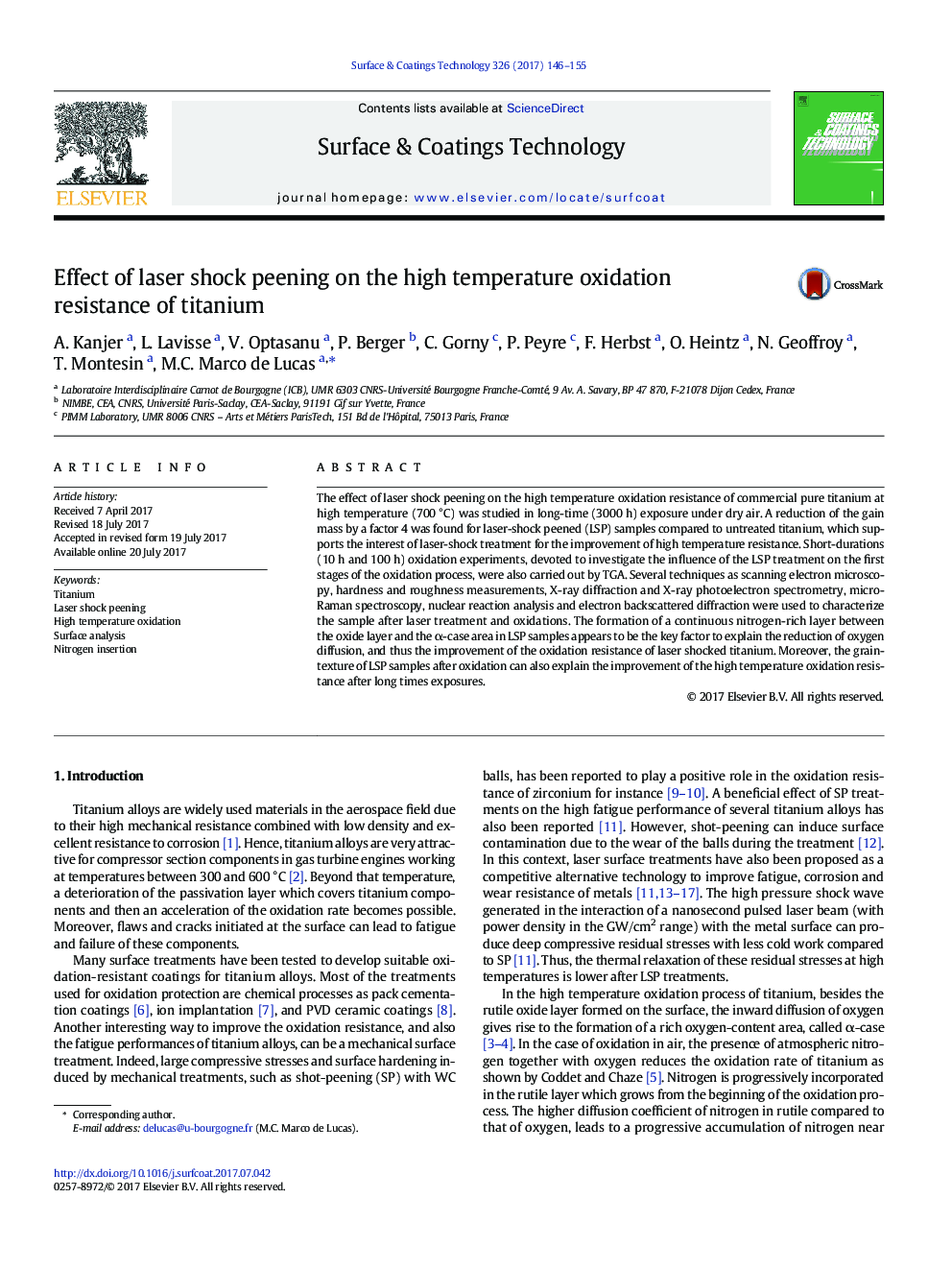| Article ID | Journal | Published Year | Pages | File Type |
|---|---|---|---|---|
| 5464518 | Surface and Coatings Technology | 2017 | 10 Pages |
Abstract
The effect of laser shock peening on the high temperature oxidation resistance of commercial pure titanium at high temperature (700 °C) was studied in long-time (3000 h) exposure under dry air. A reduction of the gain mass by a factor 4 was found for laser-shock peened (LSP) samples compared to untreated titanium, which supports the interest of laser-shock treatment for the improvement of high temperature resistance. Short-durations (10 h and 100 h) oxidation experiments, devoted to investigate the influence of the LSP treatment on the first stages of the oxidation process, were also carried out by TGA. Several techniques as scanning electron microscopy, hardness and roughness measurements, X-ray diffraction and X-ray photoelectron spectrometry, micro-Raman spectroscopy, nuclear reaction analysis and electron backscattered diffraction were used to characterize the sample after laser treatment and oxidations. The formation of a continuous nitrogen-rich layer between the oxide layer and the α-case area in LSP samples appears to be the key factor to explain the reduction of oxygen diffusion, and thus the improvement of the oxidation resistance of laser shocked titanium. Moreover, the grain-texture of LSP samples after oxidation can also explain the improvement of the high temperature oxidation resistance after long times exposures.
Related Topics
Physical Sciences and Engineering
Materials Science
Nanotechnology
Authors
A. Kanjer, L. Lavisse, V. Optasanu, P. Berger, C. Gorny, P. Peyre, F. Herbst, O. Heintz, N. Geoffroy, T. Montesin, M.C. Marco de Lucas,
